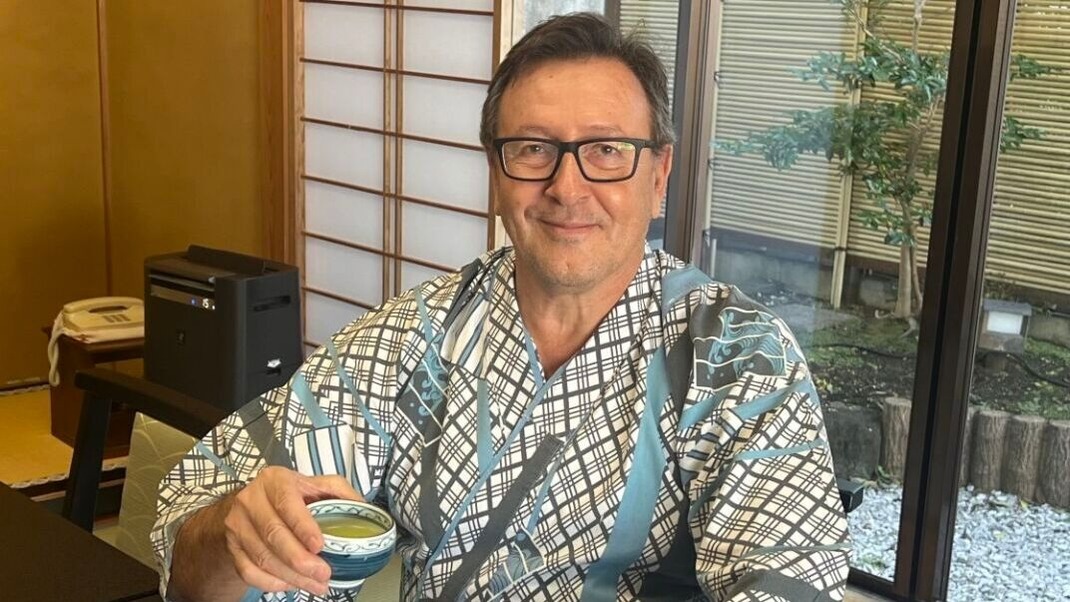KAUST Distinguished Professor wins Japan Prize

KAUST is proud to announce that Ibn Sina Distinguished Professor Carlos Duarte has won the Japan Prize, a prestigious global award, for his contribution to our understanding of marine ecosystems in a changing earth, specifically his pioneering research on blue carbon.
The Japan Prize, often referred to as the "Japanese Nobel Prize," recognizes scientists for their exceptional achievements in science and technology that advance peace and prosperity for humanity. Established in 1985, it is awarded annually in one of two areas: one in Physics, Chemistry, Informatics and Engineering; and one in Life Science, Agriculture, Medicine and Pharmacy.
“I am honored to receive the Japan Prize. Blue carbon has changed the world’s view of our oceans and the benefits of investing in a healthy ocean. It has also positioned Saudi Arabia as a global leader in ocean-based solutions to climate change, which are being implemented at scale as part of the Saudi Green Initiative and the National Red Sea Sustainability Strategy, recently announced by HRH Prince Mohammed bin Salman,” said Duarte
Blue carbon refers to the carbon that is sequestered and stored within marine ecosystems such as seagrasses, mangroves and salt marshes. These ecosystems effectively remove carbon dioxide from the atmosphere and securely store it in their sediments for millennia, if left undisturbed. Duarte showed how these ecosystems store excess organic carbon and that these habitats, which occupy only 0.2% of the ocean floor, bury up to half of all the carbon sequestered annually in the ocean. Duarte in fact coined the term blue carbon, when he introduced the concept in a report he co-authored for the United Nations in 2009, which was largely based on his pioneering research. Since then, he has become a steadfast advocate for rebuilding the abundance of marine life and highlighting the inherent economic value of protecting marine ecosystems.
Duarte joined KAUST in 2015 and quickly became not just a leading marine researcher on the Red Sea, but an expert consultant for Vision2030 initiatives, including a role as key environmental advisor to the Red Sea Global and Saudi government centers and initiatives addressing marine conservation, the blue economy and climate change.
The Japan Prize is the latest accolade he has received in his esteemed career. Other notable awards include the Frontiers of Knowledge Award (2020), the Ramon Margalef Prize in Ecology, the Carlo Heip International Award for Outstanding Research in Marine Biodiversity, the Vladimir I. Verdaski Medal in Biogeosciences and the G.E. Hutchinson Award for excellence in limnology and oceanography, among other honors.
Duarte will travel to Tokyo for the award ceremony in April, where he will be presented with the Japan Prize by Emperor Naruhito of Japan.
Duarte is the second person from KAUST to win the prize, following Jean M. J. Fréchet, a former Vice President of Research at KAUST, in 2017.
“Professor Duarte represents the best in KAUST, not only because of his excellent science, but because he is supporting the Kingdom in establishing itself as a global scientific leader. This prize demonstrates how nations rely on the Kingdom for science that guides policies for a secure and sustainable future,” said KAUST President, Sir Edward Byrne
Secretary-General of the Board of Trustees, His Excellency Dr. Fahad bin Abdullah Toonsi, added: “Professor Carlos Duarte’s recognition with the prestigious Japan Prize is a moment of immense pride for KAUST and Saudi Arabia. His groundbreaking work in blue carbon not only advances global understanding of marine ecosystems but also reinforces our nation’s focus in sustainable innovation. His contributions to climate change solutions and marine conservation are invaluable, and this honor reflects the excellence we strive for as part of Vision 2030.”

